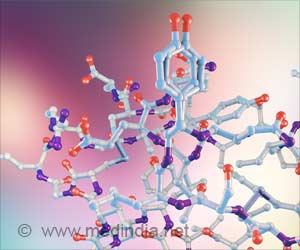The Meningitis Vaccine Project (MVP) today released new data on the performance of a meningitis vaccine in West African children, suggesting that the new vaccine
The Meningitis Vaccine Project (MVP) today released new data on the performance of a meningitis vaccine in West African children, suggesting that the new vaccine-- expected to sell initially for 40 cents a dose --will be much more effective in protecting African children and their communities than any vaccine currently on the market in the region.
MVP, a partnership between the World Health Organization (WHO) and the Seattle-based non-profit, PATH, is collaborating with Pune-based vaccine producer, Serum Institute of India Limited (SIIL), to produce the new vaccine against serogroup A Neisseria meningitidis (meningococcus).The preliminary results of their study, a Phase II vaccine trial, reveal that the vaccine could eventually slash the incidence of epidemics in the “meningitis belt,” as 21 affected nations of sub-Saharan Africa are collectively known. The vaccine is expected to block infection by the serogroup A meningococcus, and therefore extend protection to the entire population, including the unvaccinated, a phenomenon know as “herd immunity.”
The new meningococcal conjugate vaccine trial, in 12- to 23-month-olds in Mali and The Gambia, shows that the vaccine was safe, and that it produced antibody levels almost 20 times higher than those obtained with the marketed polysaccharide (un-conjugated) vaccine. This means that protection from serogroup A meningococcal meningitis is expected to last for several years.
"This important study brings real hope that the lives of thousands of children, teenagers, and young adults will be saved by immunization and that widespread suffering, sickness and socioeconomic disruption can be avoided,” said Dr. Margaret Chan, Director-General of the World Health Organization in a statement.
As a result of the encouraging preliminary findings of this Phase II clinical study, SIIL and MVP will proceed with a Phase 2/3 study where the vaccine will be tested in 2- to 29-year-olds—the population that will be mostly targeted by mass vaccination campaigns. Testing will take place in Mali, The Gambia, and at least one other African country. An additional clinical study is planned for this summer in India, where the vaccine will be licensed.
A total of 600 toddlers participated in the Phase II study. They were enrolled at two clinical sites in Africa: Center for Vaccine Development (CVD)-Mali and the Medical Research Council (MRC) Laboratories in The Gambia.
Advertisement
“Some of the families who participated in the study have lost several members of their family to meningococcal meningitis. Those who have not been directly affected know the terrible impact that the disease has on the community. There is a lot of support for the clinical study and the new vaccine in the Bamako community,” said Dr. Samba Sow, principal investigator at CVD-Mali.
Advertisement
The most prominent groups of meningococci are A, B, C, Y, and W135. While groups A, B, and C are responsible for the majority of cases worldwide, group A causes deadly, explosive epidemics every 8 to 10 years predominantly in what is known as the African “meningitis belt,” an area that stretches from Senegal and The Gambia in the West to Ethiopia in the East.
The belt has an at-risk population of about 430 million. The largest epidemic wave ever recorded in history swept across the entire region in 1996–1997, causing over 250,000 cases and 25,000 deaths.
Africa has been relatively spared in recent years, but last year's 41,526 reported cases and the 47,925 cases reported from January 1 to May 6, 2007 bring the fear that a new epidemic wave may have begun in sub-Saharan Africa.
Source: ANI
LIN/C








